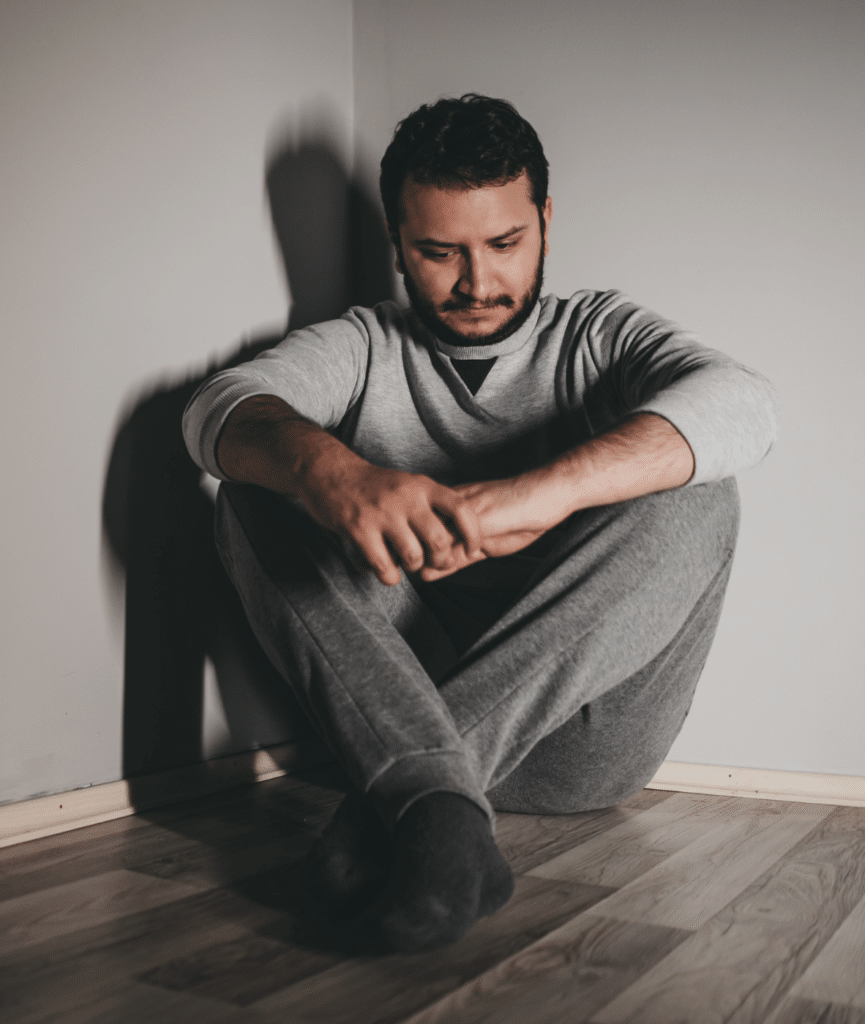Veterans and Depression: Recognizing the Signs and Seeking Treatment

You’ve made it home, but something still doesn’t feel right. Military service teaches you strength, discipline, and sacrifice, but it doesn’t always prepare you for the full emotional weight that can come afterward. If you’re feeling overwhelmed, exhausted, or low, you’re not alone. Feeling depressed after military service is more common than most people realize – it’s a response to everything you’ve been through and survived.
Depression in veterans can show up in ways that don’t necessarily look like usual “sadness.” You might have trouble sleeping, feel numb, or lack interest in the things that used to light you up. These are all signs that your mental health needs some attention.
You’ve already been through enough. You don’t have to face this challenge alone. Mission Connection can help you or someone you love better understand your mental health after military service. This guide can also help, walking you through…
- What depression in veterans is, why it happens, and what it looks like
- The long-term effects of depression in veterans
- Options for treating depression in veterans
- Available VA services for treating depression
- Where to find professional support for depression after military service

Key Takeaways
- Depression in veterans can be serious, affecting mood, energy, and daily functioning.
- Common symptoms include persistent sadness, loss of interest, sleep or appetite changes, and fatigue.
- Veterans may face unique stressors tied to service and transition to civilian life.
- Treatment can include therapy, counseling, group support, and medication.
- Mission Connection offers tailored outpatient treatment and care coordination for veterans.
Table of Contents
Understanding Depression in Veterans
What Is Depression?
Depression isn’t just feeling a bit blue every so often; it’s a type of sadness that’s with you for a long time. It can interfere with your daily life, making it difficult to do some of the most basic tasks like making lunch or brushing your teeth in the morning. You might feel sad or hopeless, not finding pleasure in the things that you used to love. Perhaps you feel guilty or don’t want to be around people anymore.
Depression might not even make you feel sad, but instead feel completely numb to the world around you. In other words, how depression feels can vary from person to person.
Depression is a common, yet serious, mental health condition that can get better when you get the right support. But to get the help you need you have to be able to recognize the symptoms, so let’s take a look at those next.
Symptoms of Depression in Veterans
Some of the most common signs of depression include:2
- Feeling sad or hopeless
- Having little energy or feeling tired
- Problems sleeping
- Feeling guilty or worthless
- Losing interest in things you used to enjoy
- Eating more or less than usual each day
- Gaining or losing weight
- Aches and pains without any other explanation
- Struggling to concentrate or focus
- Feeling anxious or irritable
- Thoughts of suicide
In addition, some other symptoms of depression may show in veterans, such as anger, aggression, hostility, feeling emotionally numb, and risk-taking behaviors.3
If you are having thoughts of suicide, seek immediate professional help by calling 911 or reaching out to a mental health crisis hotline like the 988 Suicide & Crisis Lifeline.
Military Service and Depression
A recent study found that veterans are five times more likely to develop depression than civilians – so what increases their risk so much?4 Well, research shows that certain aspects of military experience can potentially increase this risk.
Specifically, being separated from family for long periods, the stress of combat, sustaining injuries, and being in life-threatening situations can all contribute to depression.5 Additionally, if you’ve returned from active duty to civilian life, you may be experiencing post-deployment depression. This form of depression can be triggered by all you’ve been through, as well as the challenge of adjusting to a different lifestyle outside of the forces.
Long-Term Effects of Depression in Veterans
You may recognize some of the symptoms of depression in yourself, but might also be thinking, Is it really that bad? Maybe it doesn’t really matter if it’s so common? The honest answer to this question is that if depression in veterans is left untreated, it can have long-term effects on your life.
You might already have seen depression affect your mood, energy, sleep, appetite, and more. What’s more, depression can also affect your relationships with others, such as your family and friends. Even employment can become a struggle if depression affects your motivation.
On top of all these effects, depression can also affect your physical health in long-term ways. We’re not just talking about headaches, fatigue, and stomach issues – depressive symptoms are also linked to a range of lifestyle risk factors for heart disease. Therefore, looking after your mental health can have a knock-on effect on your physical health too.6 Coping with depression after service isn’t a battle to be fought alone. The right help is out there for you.
Treating Depression in Military Veterans
Depression treatment for veterans is often most effective when multiple approaches are used – tackling it from all angles. For instance, medication can help to balance the brain chemicals responsible for mood. Yet, psychotherapy addresses the root issues that keep depression in full swing, and lifestyle changes ensure your mental, emotional, and physical health are all getting the attention they need.
The following information takes a detailed look at the options for treating depression in military veterans.
Therapy for Depression in Veterans
Therapy is an effective treatment for depression as it targets the root causes that might be keeping the depression going.7 For instance, you could learn coping strategies that work specifically for you, and discover what triggers such strong feelings to rise to the surface, allowing you to create long-lasting change.8
As there are so many types of therapy available, how do you know which one is best for you? We’ve rounded up the ones shown to be most effective into the following list:9
- Cognitive Behavioral Therapy for Depression (CBT): CBT is one of the most studied therapies for depression and has a wide amount of evidence showing that it really can be effective.10 It works to help you change your thoughts, behaviors, and moods, discover new coping skills, and develop more helpful and balanced thoughts and feelings.
- Interpersonal Psychotherapy (IPT) for Depression: IPT focuses on relationship issues that may be causing depression, helping you to build skills for dealing with problematic relationships. Through this, it can improve how you feel in day to day life. For example, one study found that IPT was as effective for relieving depression symptoms as taking antidepressants.11
- Acceptance and Commitment Therapy (ACT) for Depression: Mindfulness and acceptance are both used in ACT to reduce symptoms of depression. It helps you define what values are important to you and uses these to lead you toward positive change. In other words, ACT lets you discover what really matters to you, and allows you to live your life guided by these things. Research shows that ACT for depression is effective at reducing depressive symptoms, both while in therapy and afterward.12,13
Medication for Veteran Depression
Antidepressant medications can relieve depression symptoms by boosting certain chemicals in the brain linked to mood and emotions, so they can be a valuable support for veterans with depression. Yet while antidepressants can improve your mood, they don’t address other causes of depression, so therapy is often recommended alongside medication for the best results.
Because we are all unique and react differently to medications, there are many types of antidepressants that work in various ways. This means you can work with your doctor to find one that works best for you. The first type of antidepressant usually prescribed is called a “selective serotonin reuptake inhibitor” (SSRI). Other antidepressants include serotonin norepinephrine reuptake inhibitors (SNRIs), tricyclics and tetracyclics, MAOIs, and atypical antidepressants.
Antidepressants don’t work instantly; they can take up to 6 weeks for you to feel the full benefits. Plus, like all medications, they come with the potential for side effects. You may need to try more than one type of antidepressant to find the best fit for you. And, once you find your best fit, it could take up to two months for you to start feeling like yourself again.
Lifestyle Changes for Treating Depression
- Nutrition: Eating a well-balanced diet can benefit your health and well-being. For instance, studies show that diets rich in fruit, veg, fish, whole grains, antioxidants, and olive oil can reduce symptoms of depression and even lower the risk of depression.14,15
- Mindfulness: Practicing mindfulness can reduce symptoms of depression, such as negative thoughts and rumination, as well as stress and anxiety.16,17
- Exercise: Physical activity releases chemicals in your body, such as endorphins and dopamine, which make you feel good and give you more energy. By doing so, regular exercise can reduce the symptoms of depression.18
Transcranial Magnetic Stimulation (TMS)
VA Services for Depression
The U.S. Department of Veterans Affairs, a.k.a the VA, supports millions of veterans with mental health struggles every year. They offer medication and psychotherapy to treat depression, including CBT, ACT, and IPT.
The VA health care program typically covers the cost of depression health services, so you can apply for VA health care through their website to access their treatments. However, if you don’t have VA health benefits, you may still be able to get support from them, so it’s worth checking the details on their website.
The VA also has some great resources about depression in veterans, as well as an information hotline you can call if you’d prefer to talk to someone. Their general information hotline is 800-827-1000, but if you need to talk to someone right away, there is a private, free, 24/7 crisis line you can call at 988, then select option 1.
Mission Connection: Healing Is Possible
If you have been struggling with depression since deployment, you’re not alone. Many veterans experience mental health challenges after leaving service, and healing is possible with the right care and support. That’s where we can help.
At Mission Connection, you will receive compassionate and confidential support from our team of experts. You can expect an in-depth assessment by a qualified professional and a completely individualized treatment plan personalized to you and your goals.
We know that everyone experiences depression differently: sometimes it can be debilitating, and other times it can feel manageable with a little extra support. That is why our teams provide a range of treatment approaches to help you recover, however mild or severe your symptoms are. These include:
- Residential treatment: For when you need care and support, 24 hours a day.
- Outpatient Treatment: Flexible treatment like CBT and trauma-focused therapy, which is fit around your schedule
- Intensive Outpatient Treatment: High-intensity treatment and support, with the ability to return to the comfort of your home every night
- Virtual Therapy: Confidential and compassionate care that you can access without having to leave your living room.
- Innovative Treatments: Including options like EMDR and TMS.
What’s more, Mission Connection understands that the cost of mental health treatment can be a worry for some people. That’s why we offer a range of payment options. These include finance plans, insurance payments, flexible private pay, and even sliding scale fees based on your financial need. Click here to find out more.
Reach out to our team today to talk with one of our advisors about how we can help you take the next step on the road to recovery.

References
- Moore, M. J., Shawler, E., Jordan, C. H., & Jackson, C. A. (2023). Veteran and Military Mental Health Issues. In StatPearls. StatPearls Publishing. https://www.ncbi.nlm.nih.gov/books/NBK572092/
- Chand, S. P., & Arif, H. (2023, July 17). Depression. StatPearls – NCBI Bookshelf. https://www.ncbi.nlm.nih.gov/books/NBK430847/
- Weinberg, M., Shorer, S., Marom, D., Cohen, L., & Cohen, M. (2024). Combat military service and male depression: The relationship between social support, PTSD, and male depression following combat military service. International Journal of Social Psychiatry, 70(4), 801–807. https://doi.org/10.1177/00207640241231216
- National Alliance on Mental Illness. (2024, December 10). Veterans & Active Duty National Alliance on Mental Illness (NAMI). https://www.nami.org/your-journey/veterans-active-duty/
- Inoue, C., Shawler, E., Jordan, C. H., & Jackson, C. A. (2021). Veteran and military mental health issues. In StatPearls. StatPearls Publishing.
- U.S. Department of Veterans Affairs. (n.d.). Depression. VA Research. Retrieved June 3, 2025, from https://www.research.va.gov/topics/depression.cfm
- Linde, K., Sigterman, K., Kriston, L., Rücker, G., Jamil, S., Meissner, K., & Schneider, A. (2015). Effectiveness of psychological treatments for depressive disorders in primary care: systematic review and meta-analysis. Annals of family medicine, 13(1), 56–68. https://doi.org/10.1370/afm.1719
- BACP. (2022, January 17). Depression: How counselling can help. https://www.bacp.co.uk/about-therapy/what-therapy-can-help-with/depression/
- U.S. Department of Veterans Affairs. (n.d.). Depression treatment. MentalHealth.VA.gov. Retrieved June 3, 2025, from https://www.mentalhealth.va.gov/depression/treatment.asp
- Cuijpers, P., Berking, M., Andersson, G., Quigley, L., Kleiboer, A., & Dobson, K. S. (2013). A Meta-Analysis of Cognitive-Behavioural Therapy for Adult Depression, Alone and in Comparison with other Treatments. The Canadian Journal of Psychiatry, 58(7), 376–385. https://doi.org/10.1177/070674371305800702
- Cohen, Z. D., Breunese, J., Markowitz, J. C., Weitz, E. S., Hollon, S. D., Browne, D. T., Rucci, P., Corda, C., Menchetti, M., Weissman, M. M., Bagby, R. M., Quilty, L. C., Blom, M. B. J., Altamura, M., Zobel, I., Schramm, E., Gois, C., Twisk, J. W. R., Wienicke, F. J., . . . Driessen, E. (2024). Comparative efficacy of interpersonal psychotherapy and antidepressant medication for adult depression: a systematic review and individual participant data meta-analysis. Psychological Medicine, 54(14), 3785–3794. https://doi.org/10.1017/s0033291724001788
- Bohlmeijer, E. T., Fledderus, M., Rokx, T. A., & Pieterse, M. E. (2011). Efficacy of an early intervention based on acceptance and commitment therapy for adults with depressive symptomatology: Evaluation in a randomized controlled trial. Behaviour research and therapy, 49(1), 62–67. https://doi.org/10.1016/j.brat.2010.10.003
- Bai, Z., Luo, S., Zhang, L., Wu, S., & Chi, I. (2019). Acceptance and Commitment Therapy (ACT) to reduce depression: A systematic review and meta-analysis. Journal of Affective Disorders, 260, 728–737. https://doi.org/10.1016/j.jad.2019.09.040
- Bayes, J., Schloss, J., & Sibbritt, D. (2022). The effect of a Mediterranean diet on the symptoms of depression in young males (the “AMMEND: A Mediterranean Diet in MEN with Depression” study): a randomized controlled trial. American Journal of Clinical Nutrition, 116(2), 572–580. https://doi.org/10.1093/ajcn/nqac106
- Li, Y., Lv, M., Wei, Y., Sun, L., Zhang, J., Zhang, H., & Li, B. (2017). Dietary patterns and depression risk: A meta-analysis. Psychiatry Research, 253, 373–382. https://doi.org/10.1016/j.psychres.2017.04.020
- Li, P., Mao, L., Hu, M., Lu, Z., Yuan, X., Zhang, Y., & Hu, Z. (2022). Mindfulness on Rumination in Patients with Depressive Disorder: A Systematic Review and Meta-Analysis of Randomized Controlled Trials. International Journal of Environmental Research and Public Health, 19(23), 16101. https://doi.org/10.3390/ijerph192316101
- NHS. (2024b, November 25). Mindfulness. https://www.nhs.uk/mental-health/self-help/tips-and-support/mindfulness/
- Noetel, M., Sanders, T., Gallardo-Gómez, D., Taylor, P., Del Pozo Cruz, B., Van Den Hoek, D., Smith, J. J., Mahoney, J., Spathis, J., Moresi, M., Pagano, R., Pagano, L., Vasconcellos, R., Arnott, H., Varley, B., Parker, P., Biddle, S., & Lonsdale, C. (2024). Effect of exercise for depression: systematic review and network meta-analysis of randomised controlled trials. BMJ, e075847. https://doi.org/10.1136/bmj-2023-075847
Veterans and Depression FAQs
Depression in veterans refers to a serious mood disorder marked by persistent sadness, loss of interest or pleasure, and difficulty functioning that can be linked to life stressors, service experiences, or transitions after military life.
Symptoms may include ongoing low mood, trouble sleeping or eating, fatigue, loss of interest in activities, and feelings of hopelessness or worthlessness.
Depression can arise from various factors, including stressors related to military service, life transitions, loss of support networks, or co‑occurring conditions like PTSD or anxiety.
Effective treatments may include individual therapy, group support, medication management, and coordinated outpatient care to support recovery and daily functioning.
Mission Connection offers veteran‑focused outpatient mental health care with personalized treatment plans, supportive therapy options, and care coordination designed to help veterans manage depression and improve overall well‑being.
- Signs of Treatment-Resistant Depression
- Signs of Depression Relapse
- Depression-Related Sleep Issues
- Depression Symptom Checklist
- ICD-10 Criteria for Depression
- Major Depressive Disorder (MDD) Symptoms
- Depression Symptoms
- Depression Self-Test
- PHQ-9 Depression Test
- Warning Signs of Depression
- Types of Depression
- Best Therapies for Depression
- Talk Therapy for Depression
- Telehealth for Depression
- Personalized Therapy for Depression
- Holistic Treatment for Depression
- Online Therapy for Depression
- Effective Treatments for Depression
- Medications for Depression
- Treatment-Resistant Depression Options
- Depression Relapse Prevention






